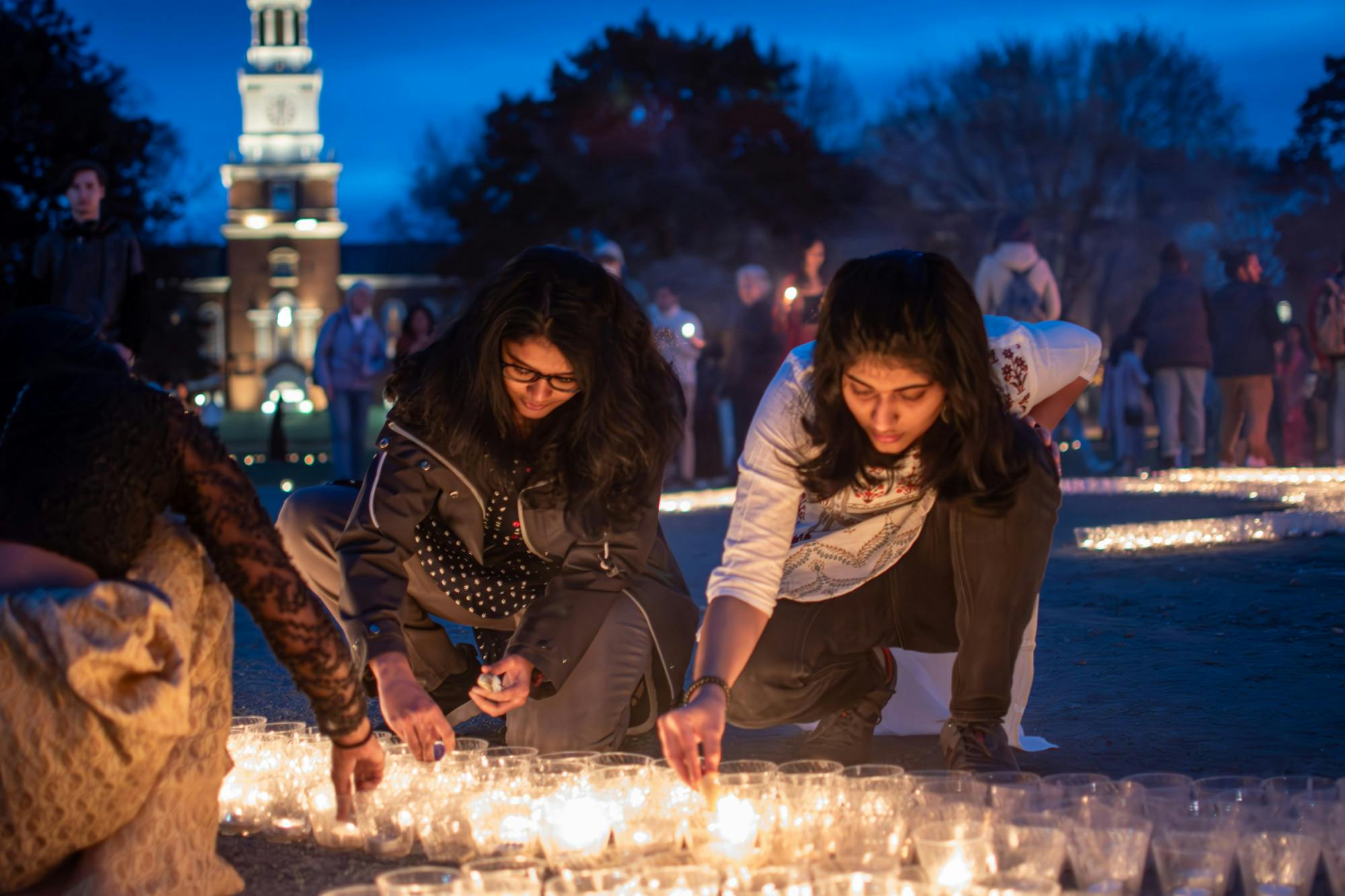On Nov. 4, Shanti, the Hindu student organization at Dartmouth, planned a series of events to celebrate Diwali, the Festival of Lights.
The organization held the Hindu prayer Puja in Rollins Chapel, lit candles and sparklers on the Green and hosted a cultural program in the ballroom of Hanover Inn with a traditional Indian dinner such as chole, biryani, gulab jamun, and yogurt for participants, according to Simar Singh ’27.
During Puja, Hindus pray to Durga and Lakshmi, the goddess of wealth and the goddess of strength and protection, respectively, according to Jayesh Choudhary ’27.
The name Diwali originated from the Sanskrit word dipavali, which means “row of lights” in English. Traditionally, lights and clay lamps are placed outside Hindu homes during Diwali — the light is thought to protect the homes from spiritual darkness and evil.
According to Choudhary, Diwali is the festival “where people come together, apologize to each other if they have done something wrong, burst crackers and have good food.”
Namitha Alluri ’25 said that for her, Diwali represents the beginning of a year and all things “good.”
“You’re lighting the lamps, so you’re out of the darkness, which means you are taking out the evil,” Alluri said. “It is a good reminder, not just for people who celebrate Diwali but for everyone, to remember the good things and shut out the bad things. When I think of Diwali, it brings in goodness and gratitude.”
The story of Diwali varies based on the region in which it is told. Those in northern India commemorate King Rama’s return to Ayodhya after defeating Ravana, according to National Geographic. Southern India’s story focuses on Lord Krishna defeating the demon Narakasura, while the holiday marks the day when Lord Vishnu sent the demon King Bali to govern the world of the dead in Western India.
Over time, non-Hindu communities, including Buddhists, began to celebrate Diwali. Choudhary noted that she would love it if more students from different communities participated in the celebration.
“This year, although there were people from the United States and people from different parts of the world, it was mostly South Asian students, Indians, Pakistanis and Bangladeshis,” Choudhary said. “Students from different backgrounds can come together and learn something about it and then have fun.”
Similarly, Singh spoke of the inclusiveness of the holiday, adding that “everybody can be a part of” Diwali.
Alluri said that showcasing different cultures on campus through celebrations like Diwali is important.
“Yes, we have a really great education at Dartmouth, but also we have such a diverse student population,” Alluri said. “And with that student population, we are able to connect cultures and intertwine beliefs and values. I think it creates a better community, a stronger community for us as the Dartmouth population.”
In the spring, the Tucker Center for Spiritual and Ethical Life held a multi-faith conversation, during which student leaders of different faith groups came together and spoke about their respective different celebrations and traditions.
“Going to the multi-faith conversation was really helpful in terms of learning about different cultures, holidays and celebrations, but also being able to share more information about Diwali to others,” Alluri said. “We can create this inclusive group culture and encourage each other to go to others’ events. So I think it helped foster that community aspect.”




